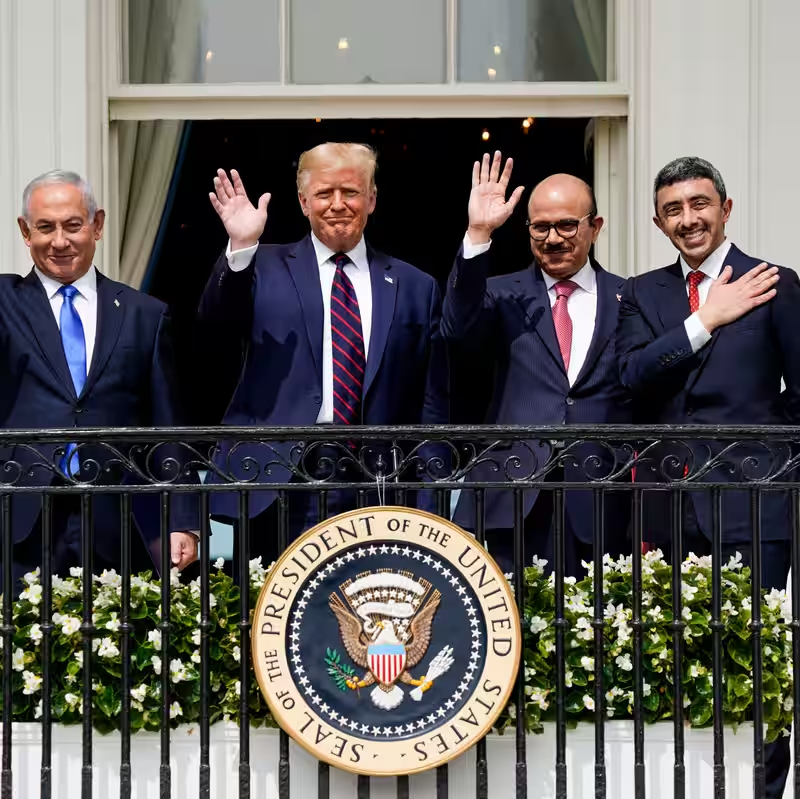Table of Contents
- What Are the Abraham Accords?
- The Trump-Era Diplomatic Breakthrough
- Which Countries Signed On?
- Why Haven’t They Brought Lasting Peace?
- Trump’s 2025 Push to Revive the Vision
- Sources
What Are the Abraham Accords?
The Abraham Accords are a series of U.S.-brokered diplomatic agreements signed in 2020 that normalized relations between Israel and several Arab nations—marking a dramatic shift in Middle Eastern geopolitics. Named after the biblical patriarch Abraham, shared by Judaism, Christianity, and Islam, the accords were framed as a bridge toward regional unity.
But five years later, as renewed violence flares and peace remains elusive, many experts question whether the Abraham Accords achieved anything beyond symbolic diplomacy.
The Trump-Era Diplomatic Breakthrough
Unveiled on the White House lawn in September 2020, the Abraham Accords were hailed by the Trump administration as a “new dawn” for the Middle East. Spearheaded by then-senior adviser Jared Kushner, the deals bypassed the long-standing Arab consensus that normalization with Israel should only follow a resolution to the Palestinian conflict.
Instead, the accords leveraged shared regional fears—particularly of Iran—and economic incentives to forge direct ties between Israel and Gulf states.
Which Countries Signed On?
As of 2025, four countries have joined the Abraham Accords framework:
| Country | Date of Agreement | Key Motivation |
|---|---|---|
| United Arab Emirates | August 2020 | Security cooperation, tech investment |
| Bahrain | September 2020 | Alignment with U.S./UAE policy |
| Morocco | December 2020 | U.S. recognition of Western Sahara claim |
| Sudan | October 2020 | Removal from U.S. terror list |
Why Haven’t They Brought Lasting Peace?
Despite opening embassies, launching direct flights, and signing billions in trade deals, the Abraham Accords have not translated into broader regional peace. Critics argue they sidelined the Palestinian issue—a core grievance for much of the Arab world.
“You can’t normalize relations while occupation continues,” said Dr. Leila Farouk, a Middle East analyst at Chatham House. “The accords created business partnerships, not peace.”
The October 2023 Hamas-Israel war further exposed the limits of these agreements. While UAE and Bahrain condemned Hamas, they also urged Israel to halt military operations in Gaza—revealing the fragility of their new alliances.
Trump’s 2025 Push to Revive the Vision
On October 13, 2025, former President Donald Trump, speaking in Israel during a fragile Gaza cease-fire, called for an “expansion” of the Abraham Accords—even suggesting Israel could one day normalize ties with Iran, its longtime adversary.
“We did something very special,” Trump said, praising Kushner’s role. “Now it’s time for the ultimate prize: peace and prosperity for the entire region.”
Yet analysts remain skeptical. Without addressing core conflicts—Palestine, Iran’s regional influence, and internal Arab dissent—the Abraham Accords may remain a diplomatic footnote rather than a foundation for peace.
Sources
The New York Times: What Are the Abraham Accords, Trump’s 2020 Mideast Deals?




